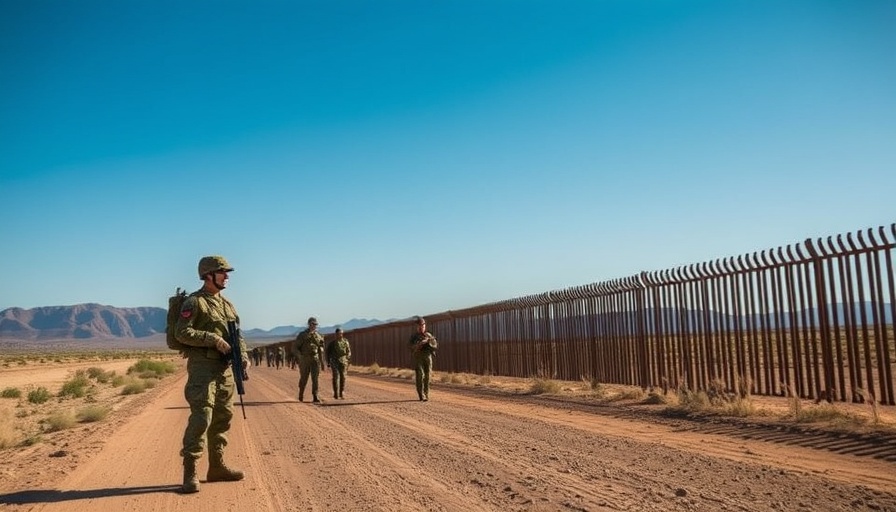
Understanding the First Detentions by US Troops at the Border
In a significant development along the US-Mexico border, troops have made their first detentions in what have been termed "military zones" established during the Trump administration. The deployment of military personnel to these areas marks a controversial chapter in U.S. immigration policy, one that raises important questions about the intersection of national security and migration management.
The Rationale Behind Military Zoning
Military zones were initially justified as necessary to bolster security and manage the increasing flow of migrants seeking refuge in the United States. Proponents argue that the challenges at the border require a strong and coordinated response from all branches of government, including the military. However, critics caution that this approach can blur the lines of law enforcement and military action, potentially subjecting civilians to military jurisdiction.
The Human Impact of Military Presence
Human rights advocates view the military's involvement as an escalation that may lead to the maltreatment of vulnerable populations, primarily migrants. As detentions rise, so too does concern over the conditions and treatment of these individuals. Stories of families being separated and individuals held in uncertain circumstances are emerging, underscoring the need for judicial oversight and transparency in how these detentions are conducted.
Public Response and Advocacy
The public's reaction to military detentions has been divided. While some citizens support stronger border control measures, others express outrage over the potential militarization of immigration enforcement. Advocacy groups have taken to the courts to challenge this deployment, arguing that it infringes on civil liberties and essential human rights. As these legal battles unfold, they may shape the future of U.S. immigration policy.
Potential Future Trends in Border Policy
Looking ahead, it is crucial to consider how these events might influence broader immigration and border policies. As challenges at the border persist, there may be calls for more innovative strategies that prioritize humane treatment and integration of migrants rather than strictly punitive measures. The trends observed today may serve as a barometer for the evolving landscape of U.S. immigration law.
The Economic Implications of Border Policies
Beyond humanitarian considerations, the current border policies could also have significant economic implications. Businesses reliant on migrant labor might face labor shortages if the current trends continue, impacting industries from agriculture to technology. Understanding these economic factors can help inform a more nuanced conversation about immigration reform and workforce needs.
Engagement and Advocacy for Change
Your voice matters in this ongoing discourse about immigration policy. Engaging with local representatives, participating in discussions, and advocating for humane immigration policies can contribute to lasting changes that reflect the values of compassion and justice. As these conversations gain traction, they may lead to more equitable outcomes for all involved.
 Add Row
Add Row  Add
Add 



Write A Comment